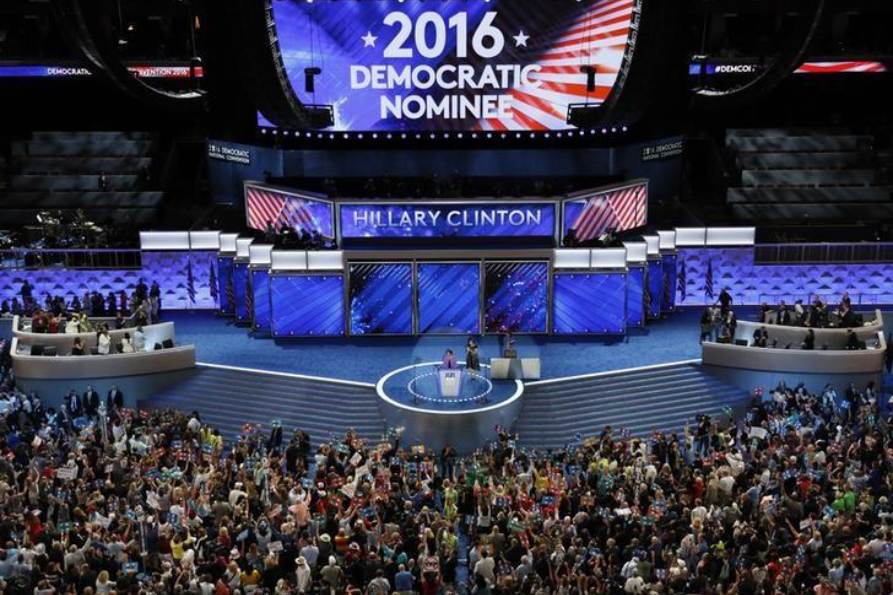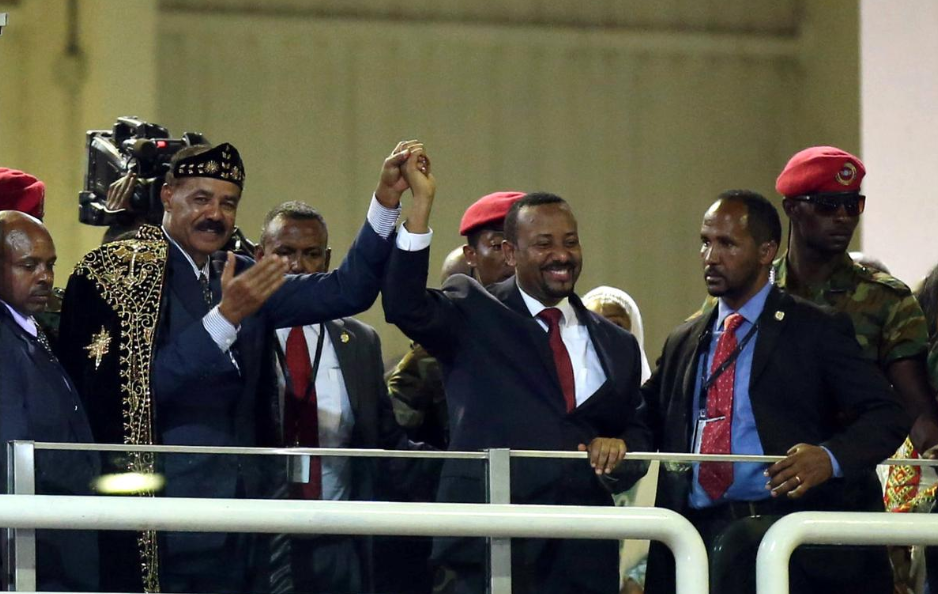
Editor's note: This is the 30th article in the COVID-19 Global Roundup series. Here is the previous one.
As the global pandemic continues to rage across the world, efforts to slow the spread of coronavirus have now extended to taking far-reaching steps that may, as some would argue, deeply impact the very bedrock of democratic institutions.
Concerns that throngs of people heading to the polls would run entirely opposite to "social distancing" have materalized decisions to postpone upcoming elections, whether municipal-, state-level or nationwide, in some countries.
But as consequential as it sounds, deferral of elections due to health crisis is not unprecedented. In 2018, the Ebola outbreak pushed the Democratic Republic of Congo to delay its presidential race. In 2001, the UK general election was pushed back because of the spread of foot and mouth disease across the country.
On top of the overriding role that coronavirus fears retain in the discourse regarding electoral deferalls, the low voter turnout is, among other considerations, another vital component that determines the future course of elections. The February parliamentary election in Iran saw low turnout amid the coronavirus outbreak.
The impact of pushing back elections could be tremendous, especially on sophisticated, gigantic democracies with intricate electoral rules as well as divergent voices addressing the subject.
In the United States, where tens of thousands of people have been infected with the virus, the ongoing presidential primaries have been deeply affected.
So far, fourteen states and one territory – Alaska, Connecticut, Delaware, Georgia, Hawaii, Indiana, Kentucky, Louisiana, Maryland, New York, Ohio, Pennsylvania, Rhode Island, Wyoming and Puerto Rico – have either held off their primary elections or switched to voting by mail with extended deadlines.
Nearly half of these states decided to hold their presidential primaries on June 2, a week before before the June 9 deadline set by the Democratic National Committee.
Despite the DNC's plain reluctance to have states move their nominating contests beyond the arranged timeframe, New York, where massive clusters of confirmed cases converge and death tolls skyrocket, set to delay its primary to June 23.
While New York Governor Andrew Cuomo said the delay will not complicate the situation because a state- and congressional-level primary was already slated to take place on June 23, the Democratic party said the move could result in a partial loss of delegates at the national convention in July, an outcome potentially triggered by a DNC stipulation that states holding primaries outside the designated calender would have to halve their delegates at the convention.

Delegates cheer at the annoucement that Hillary Clinton is named the Democratic Party nominee for president at the Democratic National Convention in Philadelphia, Pennsylvania, U.S., July 26, 2016. /Reuters
Delegates cheer at the annoucement that Hillary Clinton is named the Democratic Party nominee for president at the Democratic National Convention in Philadelphia, Pennsylvania, U.S., July 26, 2016. /Reuters
Further perplexing the Democratic primaries is that New York's delay may also disrupt the election campaigns of both Joe Biden and Bernie Sanders, the last two standing candidates, due to its collision with another set of DNC regulations. The rules say any candidate campaigning in a state that has moved its primary race outside the mandated schedule will not be awarded any delegates from that state. While both candidates have suspended physical campaigns in all states, the broad definition of "campaigning" as per these guidelines could make Sanders and Biden subject to these consequences.
But uncertainties over whether the DNC will actually enforce these rules linger on. In a statement to U.S. news outlet Vox, DNC Communications Director Xochitl Hinojosa said, "We will continue to monitor the situation and work with state parties around their delegate selection plans, and if states move beyond the June 9th window stated in our rules, the Rules and Bylaws Committee will meet to discuss and determine next steps."
New York's postponement came days after the DNC insisted its July convention is going forward as planned. Organizers for the national convention have been contemplating contingency options to replace the planned on-site gathering set to take place in Milwaukee. A virtual convention, as some have suggested, is a high possibility.
"Given what the experts are saying, delegates may end up on a phone call" selecting their nominee, Bob Mulholland, a DNC member from California told U.S. news magazine POLITICO. "Push 1 for Sanders, push 2 for Biden, push 3 for Bloomberg and push 8 for Yang, etc.."
President Donald Trump said on Friday that the Republican National Convention would go forward as planned this August.
In younger, less stable democracies across the world, attempts at delaying elections due to coronavirus concerns can also be seen.
On Tuesday, the electoral board in Ethiopia announced the delay of the country's parliamentary elections that were originally scheduled for August, a move endorsed by some key opposition parties.
The vote had been regarded as an important test of the reformist agenda of Prime Minister Abiy Ahmed in what was once one of the continent's most repressive nations.
"Due to the pandemic we were forced to suspend our activities," said an Amharic-language statement from the National Electoral Board of Ethiopia. The board will announce a new timeline once the pandemic has subsided, it said.
Ethiopia is Africa's second-most populous nation with 105 million citizens. Abiy promised to liberalize the state-run economy and oversaw reforms that freed thousands of political prisoners, journalists and opposition activists. Previous elections in Ethiopia, a parliamentary democracy, have been marred by allegations of rigging and intimidation.

Ethiopian Prime Minister Abiy Ahmed and Eritrea's President Isaias Afwerki hold hands during a concert at the Millennium Hall in Addis Ababa, Ethiopia July 15, 2018. /Reuters
Ethiopian Prime Minister Abiy Ahmed and Eritrea's President Isaias Afwerki hold hands during a concert at the Millennium Hall in Addis Ababa, Ethiopia July 15, 2018. /Reuters
Abiy has promised to hold free and fair elections and has been positioning himself as a unity candidate whose reforms could replace repression as the glue holding Ethiopia's often fractious federal regions together. But his party would have faced a stiff challenge from many newly resurgent regional, ethnically based parties.
Although opposition to the delay is largely absent across the aisle, representatives of some opposition parties warned against taking unilateral steps in the future, stressing the importance of prior consultation and calling for discussions on topics such as the conditions for a fair election, transitional justice and reconciliation, and the federation's major political fault lines.
The openness fostered by Abiy when he became premier in 2018 won him plaudits at home and abroad. But it also fanned the embers of long-repressed rivalries between ethnic groups as regional strongmen sought to mobilize local voting blocs.
The resulting clashes, along with natural disasters, forced more than two million people to flee their homes, according to the United Nations, although some have now returned.
On March 21, the day when Bolivia's interim government announced a nationwide lockdown, presidential elections originally slated for May 3 were also postponed.
The country's electoral authority said in a statement it would "suspend the elections calendar" for 14 days to match the quarantine, but did not set a new date for the vote.
The tribunal said it would work together with all of the country's political parties and organizations to determine when to hold the election.
Bolivia had previously gone through a political crisis that saw civil protests forcing the former president to step down in November 2019. Following that, the second vice president of the Senate, opposition senator Jeanine Anez, took over the helm of an interim government on 12 November, being the next in line for the presidency after a vacuum had been left following a string of resignations.

Bolivian Senator Jeanine Anez gestures after she declared herself as Interim President of Bolivia, at the balcony of the Presidential Palace, in La Paz, Bolivia November 12, 2019. /Reuters
Bolivian Senator Jeanine Anez gestures after she declared herself as Interim President of Bolivia, at the balcony of the Presidential Palace, in La Paz, Bolivia November 12, 2019. /Reuters
Anez's interim term will end when new elections take place.
So far the country has reported more than 80 coronavirus cases.
Sri Lanka's Parliamentary elections, which were previously scheduled on April 25, have also been postponed.
Sri Lanka should focus on eradicating the spread of the virus in the country at this point, Mahinda Deshapriya, the chairman of the country's election commission, said. "Coronavirus will decide when we can hold the election again."
The move came after President Gotabaya Rajapaksa called for the dissolution of the parliament and announced the decision to not hold off the planned elections. But opposition leader Sajith Premadasa resisted the idea.
"What they must actually do is to suspend this election and find a solution to this corona[virus] issue. Please consider these facts and prioritize the lives of the voters over the two-thirds majority," Premadasa said.
Sri Lanka has so far confirmed 142 COVID-19 cases.
Apart from national elections, local elections have also fallen victim to the coronavirus outbreak.
In France, although the first round of municipal elections were held as scheduled on March 15, the country's higher level of crisis response given a day before and the historically low voter turnout forced President Emmanuel Macron to move the second round to June 21. Local elections in England scheduled for May – including the London mayoral election – was also announced to be delayed for a year. On top of halting a referendum poised to decide whether the number of lawmakers should be reduced, Italy is also expected to hold off regional elections in nine of its 20 regions.
(With input from agencies)